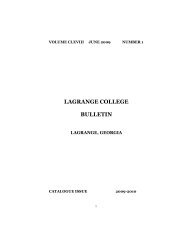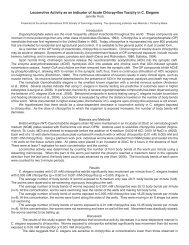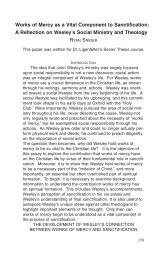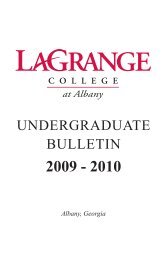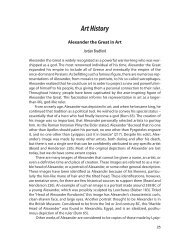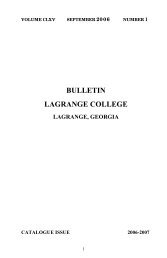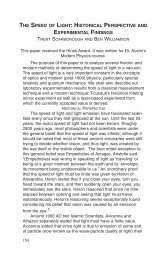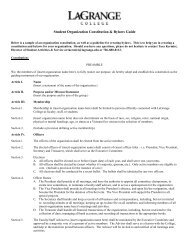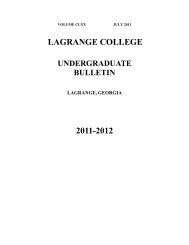History Gorbachev's Perestroika and the Collapse of the Soviet Union
History Gorbachev's Perestroika and the Collapse of the Soviet Union
History Gorbachev's Perestroika and the Collapse of the Soviet Union
You also want an ePaper? Increase the reach of your titles
YUMPU automatically turns print PDFs into web optimized ePapers that Google loves.
<strong>and</strong> threatened to topple <strong>the</strong> communist regime in favor <strong>of</strong> democratically-elected<br />
leaders in each <strong>of</strong> <strong>the</strong> countries <strong>of</strong> <strong>the</strong> <strong>Soviet</strong> bloc. This push for democracy was<br />
present in all levels <strong>of</strong> society, including within <strong>the</strong> government itself. In August, a<br />
coup was staged in <strong>the</strong> attempt <strong>of</strong> overthrowing <strong>the</strong> communist regime <strong>and</strong> installing<br />
a democratic government. 78 The main members <strong>of</strong> <strong>the</strong> coup were members <strong>of</strong><br />
<strong>the</strong> military, KGB, <strong>and</strong> a h<strong>and</strong>ful <strong>of</strong> government <strong>of</strong>ficials. Although <strong>the</strong> coup was<br />
complex, <strong>the</strong> basic plan involved placing Gorbachev under house arrest at his vacation<br />
home in <strong>the</strong> Crimea <strong>and</strong> replacing his regime with a democratic-minded one. 79<br />
Initially, <strong>the</strong> coup succeeded but it was short-lived; <strong>the</strong> new government was only<br />
in place for three days before Gorbachev was able to free himself from his isolation<br />
in <strong>the</strong> Crimea <strong>and</strong> return to Moscow. However, his return to <strong>the</strong> government was<br />
also short-lived. Soon after Gorbachev returned <strong>and</strong> attempted to regain control<br />
<strong>of</strong> <strong>the</strong> government, right-wing groups throughout <strong>the</strong> <strong>Soviet</strong> <strong>Union</strong> began calling<br />
for democratic elections <strong>and</strong> fur<strong>the</strong>r freedoms for <strong>the</strong> people. Almost as though<br />
he recognized defeat Gorbachev was forced to step down <strong>and</strong> acknowledge <strong>the</strong><br />
independence <strong>of</strong> <strong>the</strong> Eastern European nations who had been part <strong>of</strong> <strong>the</strong> USSR<br />
<strong>and</strong> recognize <strong>the</strong>ir newly-created democratic governments. 80 In Russia, Boris Yeltsin<br />
ascended to power <strong>and</strong> set up a more democratic-style government. 81 Almost<br />
as quickly as it had risen to power, <strong>the</strong> communist party was overthrown <strong>and</strong> <strong>the</strong><br />
<strong>Soviet</strong> <strong>Union</strong> ceased to exist.<br />
Although <strong>the</strong> historiography <strong>of</strong> <strong>the</strong> Cold War period <strong>of</strong>fers a variety <strong>of</strong> <strong>the</strong>ories<br />
that purport to have been <strong>the</strong> sole cause <strong>of</strong> <strong>the</strong> collapse <strong>of</strong> <strong>the</strong> <strong>Soviet</strong> regime,<br />
it is clear that <strong>the</strong> collapse was, in fact, caused by a combination <strong>of</strong> factors, with perestroika<br />
<strong>and</strong> Gorbachev’s o<strong>the</strong>r reforms being <strong>the</strong> final failure that sealed <strong>the</strong> fate<br />
<strong>of</strong> <strong>the</strong> already-crumbling government. All <strong>of</strong> <strong>the</strong> factors involved worked toge<strong>the</strong>r<br />
to create a situation that <strong>the</strong> government could not recover from. The weakness <strong>of</strong><br />
<strong>the</strong> economy coupled with pressures from <strong>the</strong> West to rearm, a rise in dissension<br />
among <strong>the</strong> <strong>Soviet</strong> people <strong>and</strong> <strong>the</strong> government’s loosening grip over <strong>the</strong> empire<br />
crippled <strong>the</strong> regime <strong>and</strong> effectively caused <strong>the</strong> fall <strong>of</strong> communism in Eastern Europe.<br />
In terms <strong>of</strong> perestroika’s role in <strong>the</strong> collapse, its general vagueness <strong>and</strong> lack<br />
<strong>of</strong> substantive economic recovery results hugely contributed to <strong>the</strong> erosion <strong>of</strong> <strong>the</strong><br />
support that <strong>the</strong> people had for <strong>the</strong> communist government. According to Michael<br />
<br />
Laura Cummings



